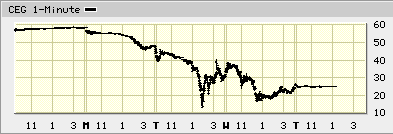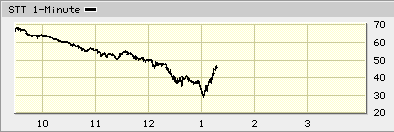After seeing the price of crude oil start the year around $100 per barrel, peak at nearly $150, and come nearly all of the way back, where does the oil market go from here? It is interesting to see how many people no longer think we see a range of $150 to $200 anymore. The Goldman Sachs year-end target of $149 is now considered overly bullish by most pundits. Is the bull market in oil over?
The sharpness of the recent decline lends some credence to the belief that much of the 2008 price spike was related to speculative trading activity. After all, the move from the 120's to the 140's came with nearly no new information that would lead one to think the supply/demand balance had changed materially. Daily price swings of $5+ became commonplace without significant events accompanying them. Now with oil down about 25% from its high, calls for $70 or $80 oil are easy to find.
Personally, I think it is important to note that the fundamentals of the oil bull market remain intact. Global demand is growing faster than global supply. It is true that we began to see demand destruction once crude passed $140 per barrel, but since that level was merely temporary, a price of $110 or $115 all of the sudden looks reasonable again. Should we expect gasoline demand to continue to drop at the same pace when gas drops from over $4.00 to under $3,50 per gallon? Probably not.
Even if demand growth drops in the United States and China and India see lower GDP growth levels, oil demand should still rise in coming years. Consider 2008 worldwide demand. Despite the price spike we saw this year, daily global consumption is estiamted to rise 1% to 86.3 million barrels per day. That comes on the heals of a 1% increase last year and another 1% increase forecasted for 2009.
In any bull market there are periods of sharp spikes higher and even sharper declines. Looking at the global economy, it is hard to argue that oil demand will not continue to grow. Sure, alternative energy sources can cut that growth rate noticeably, but with each and every price correction brings less pressure to really promote alternatives in a meaningful way.
A price correction moving toward $100 per barrel, without significant fundamental changes in the outlook for crude oil demand and supply and demand, makes me think triple digit oil prices are not going to become a thing of the past any time soon, for an extended period of time anyway.
From an investment perspective, leading oil producers have seen serious price per share declines, which now imply long term oil prices of far less than $100 per barrel (most are between $70 and $80 per barrel). If you think the next three to five years will see triple digit oil, as I do, then the stocks are going to prove to be excellent investments from here.





